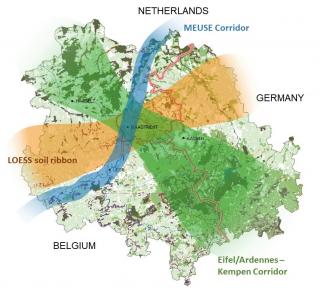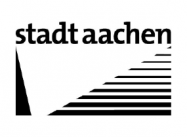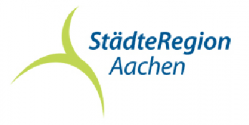
PLUS Change
Planning Land Use Strategies: meeting biodiversity, climate and social objectives in a Changing world
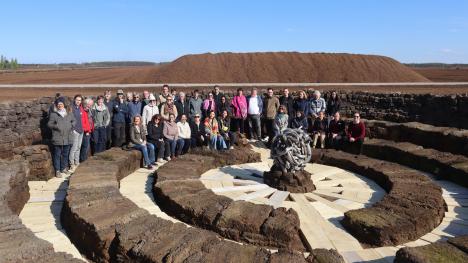
Land use strategies for biodiversity, climate and social well-being in a changing world
The HORIZON project PLUS Change (Planning Land Use Strategies for meeting climate, biodiversity and social goals in a Changing world) aims to raise awareness of how decisions about how we use and manage land affect the climate, people and the environment. Accompanied by a research process, different plans and strategies are being developed in 12 practice regions to make land use more sustainable and climate-resilient in a rapidly changing world.
The four-year project was launched on 1 June 2023 under the leadership of the Czech research institute Czech Globe. 23 partners from research and practice in the EU, the UK and Switzerland are involved in the project. The Three-Countries Park is participating as a practice partner via the EMR.
The general assembly of 2025 took place in Riga from 13 to 15 May 2025, attended by around 40 participants from the project partners. The Baltic Studies Centre (BSC) hosted the event. These annual meetings focus on the integration of science and practice. The practical partners contribute their experience from various land use planning projects in different regions of Europe to the research process at EU level. Conversely, the project offers opportunities to research and test innovative options for action in the practical regions.
In addition to an environmental master plan for the Paris region (Île-de-France), a mountain farming project in Switzerland (Parc Ela) and regional plans in Slovenia and Poland, for example, the Three-Countries Park case study deals with a cross-border roadmap for a climate-resilient landscape. The focus here lies on the three cross-border cooperation axes of the Blue-Green Star model, which was developed following the ‘Space for Green Infrastructure’ project (figure on the right):
- Blue axis: Meuse corridor with tributaries and their catchment areas
- Green axis: Eifel/Ardennes–Kempen corridor
- Orange axis: fertile loess soil belt
The aim of the blue axis is to increase water retention in the landscape of cross-border river basins, such as the Rur, Geul, Weser and Jeker, and to strengthen the small water cycle in order to buffer extreme weather events such as heavy rainfall, droughts and heat waves. It also aims to promote upstream-downstream solidarity across borders. This field of action is already being addressed in the INTERREG project SPONGE, a first spin-off of PLUS Change in the Three-Countries Park.
The aim of the green axis is to strengthen connections between Natura 2000 areas and other protected areas – from the Eifel National Park in Germany to Walloon and Dutch territory to the Hoge Kempen and Bosland National Parks in Flanders. The common goal is to create contiguous habitats for endangered animal and plant species so that they can spread and adapt to changing climatic conditions.
The orange axis aims to preserve fertile land and address cross-border problems and needs in agriculture. The goal is to explore innovative governance models that allow farmers to contribute and develop their local knowledge, experience and individual business models as blue-green heroes.
By the end of the project, the roadmap should identify solutions for how the cross-border transformation to a climate-resilient landscape in the green heart of the Euregio Meuse-Rhine can be achieved.
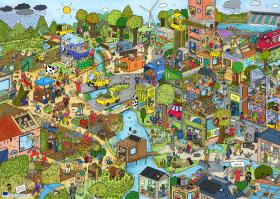
Have you been to 'Circuville'? This cheerful Wimmelbild invites you to embark on a visual and auditory journey through a futuristic circular city, guided by characters like 'the farmer' and 'the researcher'. Many aspects depicted are already feasible today and are designed to inspire discussions on sustainable land use.
As a counterpart to this, a ‘Spongeland’ Wimmelbild is being created for the Three-Countries Park. Coming soon!
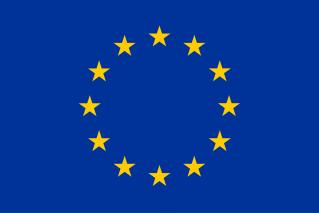
Duration: 2023-2027
Funding: EU HORIZON
Total budget: 6,7 Mio €
Leadpartner: Czech Globe
Three-Countries Park: Practice partner
Project websitepluschange.eu
Research partners:
- Leuphana Universität Lüneburg, Germany
- KnowlEdge Srl, Italy
- Nodibinajums Baltic Studies Centre, Latvia
- Stichting ISOCARP Institute Center Of Urban Excellence, The Netherlands
- International Creative Projects B.V., The Netherlands
- Stichting Vrije Universiteit Amsterdam, The Netherlands
- Konrad-Lorenz-Institut für Evolutions- und Kognitionsforschung, Austria
- Stowarzyszenie Centrum Rozwiazan Systemowyc, Poland
- Stockholms Universitet, Sweden
- Univerzita Konstantina Filozofa v Nitre, Slovakia
- Univerza v Ljubljani, Slovenia
- Plan4all, Czechia
Practice partners:
- Euregio Maas-Rhein (Three-Countries Park), Belgium
- Vlaamse Landmaatschappij, Belgium
- Peri-urban Regions Platform Europe (PURPLE), Belgium
- Île de France, France
- Provincia di Lucca, Italy
- Wojewodztwo Mazowieckie, Poland
- Verein Parc Ela, Switzerland (associated partner)
- RRA Zeleni kras doo, Slovenia
- Regionalni rozvojova agentura jizni Moravy, Czechia
- Surrey County Council, United Kingdom (associated partner)
